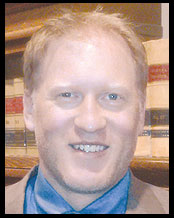During a divorce, it is not unheard of for one of the parties (usually the one filing for divorce) to suggest to the other party, “You don’t need a lawyer. My lawyer can handle all the paperwork for both of us.” The spouse who has not yet contacted an attorney may not want to spend the extra money on a lawyer at a time of financial uncertainty, and agree with the plan to “use one lawyer between the two of us.” What that spouse does not realize, is that in the absence of an agreement to the contrary, the lawyer represents only the person who hired the lawyer. This can have disastrous consequences for the party without their own lawyer.
For example, what many people do not know is that with limited exceptions, any property acquired by the parties during the marriage is subject to division, including retirement plans, regardless of who owns the plan. A common provision within a divorce settlement agreement will state that the parties shall each keep their own retirement plans. If one party has a substantially larger retirement then the other party, the party with the larger retirement has an incentive to not see that plan divided. Without her own lawyer, the party with the smaller retirement may not blink an eye when she sees the words, “Each party shall retain their own retirement accounts” in a settlement proposal. In many cases this mistake can cost that party tens of thousands of dollars or more.
A similar situation may arise on the context of debts, whether credit cards, medical bills, or other debts. With limited exceptions, debts accrued during the marriage are subject to division, regardless of which party incurred the debt, or in whose name the debt is titled. This includes but is not limited to credit cards and medical bills. The person with less debt in her name has an incentive to prevent the debt from being split, and may suggest to the other spouse that they each keep the debts in their respective names. For the party with substantially more debt in their name than the other spouse, this can be a devastating arrangement.
Do not expect the judge to look out for you just because you do not have an attorney. In the absence of a patently unreasonable, or unconscionable provision in a divorce settlement agreement, the judge is not going to ask many, if any, questions about the settlement agreement. The short answer to why you should not let your spouse’s lawyer handle the divorce, is “Because he works for your spouse, who is divorcing you in the first place.”
Additional information can be provided by contacting Berry Law Firm online at www.jsberrylaw.com.

